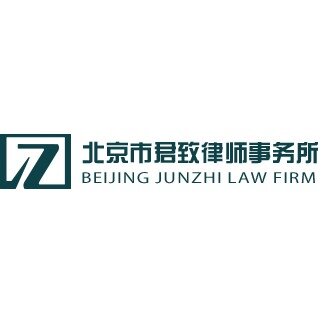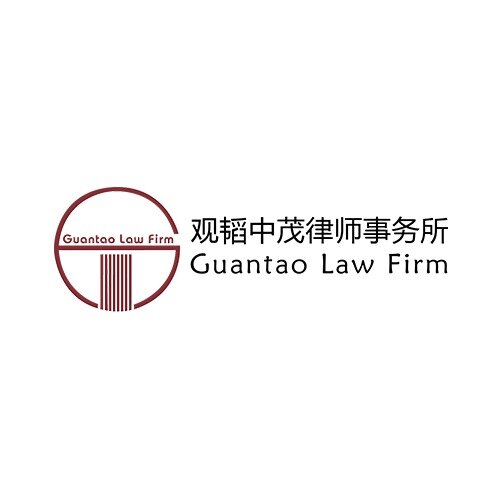Best Corporate Governance Lawyers in Beijing
Share your needs with us, get contacted by law firms.
Free. Takes 2 min.
List of the best lawyers in Beijing, China
About Corporate Governance Law in Beijing, China
Corporate governance refers to the system of rules, practices, and processes by which companies are directed and controlled. In Beijing, as in the rest of China, corporate governance focuses heavily on ensuring transparency, accountability, fairness, and responsibility within companies, especially those with complex ownership structures or those listed on stock exchanges. The Chinese government has established a comprehensive legal framework, drawing on principles from both Chinese law and international best practices, to regulate the governance of companies and promote confidence among investors and stakeholders.
Why You May Need a Lawyer
Engaging a lawyer who specializes in corporate governance in Beijing can be crucial for several reasons. Companies, both local and foreign-invested, may face issues such as setting up governance structures, dealing with regulatory compliance, drafting articles of association, managing disputes among directors or shareholders, and understanding new reforms or government guidance. Legal professionals assist in ensuring your board composition and practices align with both the law and your business needs, respond to investigations or government inquiries, and manage relationships among shareholders, directors, and management. Professional advice is also important when handling mergers, acquisitions, restructuring, or when exploring financing options, to ensure that all actions comply with local laws and regulations.
Local Laws Overview
The major legal source of corporate governance in Beijing is the Company Law of the People’s Republic of China, which sets out specific requirements for company structure, board composition, shareholder rights, and disclosure obligations. Companies listed on Beijing’s stock exchanges must also comply with various rules issued by regulators such as the China Securities Regulatory Commission. The Corporate Governance Code for Listed Companies features expectations on independent directors, audit and supervisory committees, and internal control mechanisms. Foreign-invested enterprises face additional compliance requirements under the Foreign Investment Law and related regulations. Local policies by authorities in Beijing may also influence corporate governance practices, especially in state-owned enterprises and high-tech zones.
Frequently Asked Questions
What is the basic structure of a company under Chinese law?
Most companies in China are structured as limited liability companies or joint stock companies. Both forms require a shareholders’ meeting, a board of directors, and a board of supervisors or supervisory board to oversee management.
Are there special governance rules for listed companies?
Yes, listed companies must comply with stricter disclosure, transparency, and board composition requirements, including the appointment of independent directors and the establishment of committees like audit and remuneration committees.
How are board members appointed and removed?
Board members are typically elected or removed by shareholders’ meetings in accordance with the company’s articles of association and the Company Law.
What are the main duties of directors and supervisors?
Directors must act in good faith, with loyalty and diligence, in the best interests of the company. Supervisors oversee the actions of directors and senior management, particularly regarding compliance.
What is the role of internal controls and audit committees?
Internal controls and audit committees are essential for ensuring accurate financial reporting, preventing fraud, and increasing transparency within listed and larger private companies.
How are conflicts of interest managed in company governance?
Directors and executives must disclose any conflicts of interest and may be required to abstain from voting on certain matters. Related-party transactions must often receive approval from independent directors or supervisory boards.
Can foreign investors or executives serve as directors?
Yes, foreign individuals can serve as directors in Chinese companies, subject to certain qualifications and compliance with visa and work permit requirements.
How are shareholder meetings conducted and what rights do shareholders have?
Shareholder meetings are held regularly to approve significant decisions. Shareholders have voting rights proportional to their shareholdings, and may propose meeting topics, ask questions, and vote on resolutions.
What happens when corporate governance rules are violated?
Violations can result in regulatory fines, administrative penalties, legal claims, or even criminal liability, depending on the severity and nature of the breach.
How often do governance laws change in Beijing or China?
Corporate governance laws are regularly updated to reflect changing economic and regulatory environments. It is important to stay informed of new company law amendments, regulatory notices, and local implementations in Beijing.
Additional Resources
To access more information or support on corporate governance in Beijing, consider consulting the following resources:
- China Securities Regulatory Commission (CSRC) - Responsible for regulating listed companies and public offerings
- State Administration for Market Regulation (SAMR) - Oversees company registration and compliance
- Beijing Municipal Administration for Market Regulation - Local authorities for company compliance in Beijing
- Beijing Lawyers Association - Provides directories of qualified corporate governance lawyers
- China Association for Public Companies - Offers guidance and training on best practices in governance
- Leading law firms specializing in corporate and commercial law in Beijing
Next Steps
If you need legal assistance regarding corporate governance in Beijing, start by identifying your specific issue or concern. Gather all relevant company documents and any communications with regulatory authorities or stakeholders. Contact a reputable law firm or lawyer with experience in corporate governance, especially in your sector or company type. Arrange an initial consultation to discuss your situation and receive guidance on possible solutions or compliance steps. Regularly monitor legal updates relevant to your business and consider ongoing legal support to ensure your governance framework remains robust and compliant.
Lawzana helps you find the best lawyers and law firms in Beijing through a curated and pre-screened list of qualified legal professionals. Our platform offers rankings and detailed profiles of attorneys and law firms, allowing you to compare based on practice areas, including Corporate Governance, experience, and client feedback.
Each profile includes a description of the firm's areas of practice, client reviews, team members and partners, year of establishment, spoken languages, office locations, contact information, social media presence, and any published articles or resources. Most firms on our platform speak English and are experienced in both local and international legal matters.
Get a quote from top-rated law firms in Beijing, China — quickly, securely, and without unnecessary hassle.
Disclaimer:
The information provided on this page is for general informational purposes only and does not constitute legal advice. While we strive to ensure the accuracy and relevance of the content, legal information may change over time, and interpretations of the law can vary. You should always consult with a qualified legal professional for advice specific to your situation.
We disclaim all liability for actions taken or not taken based on the content of this page. If you believe any information is incorrect or outdated, please contact us, and we will review and update it where appropriate.















